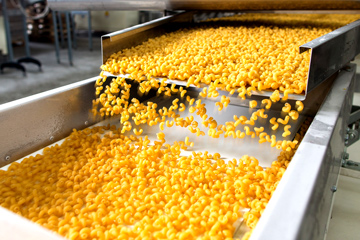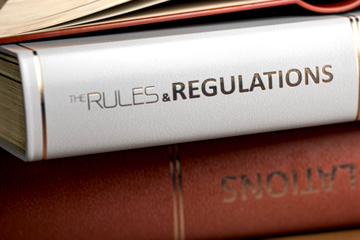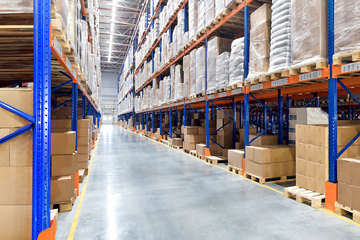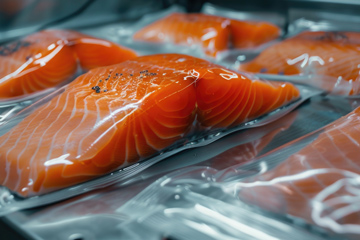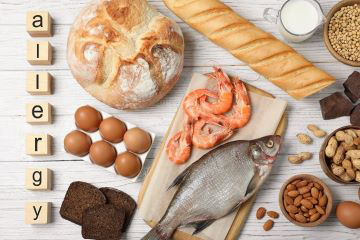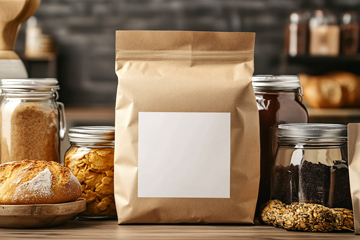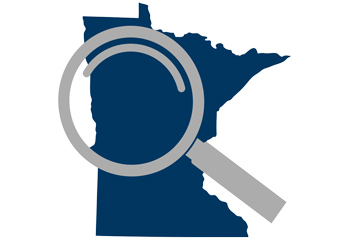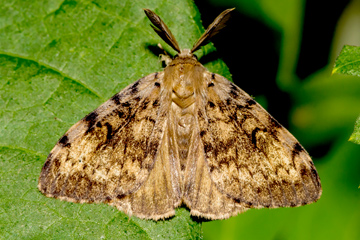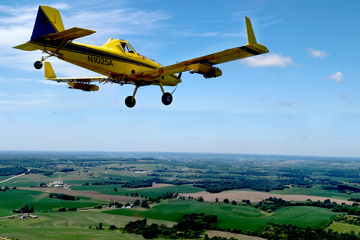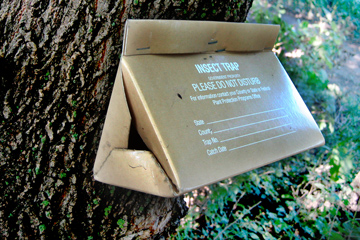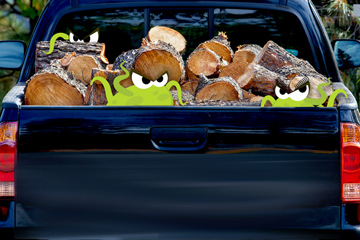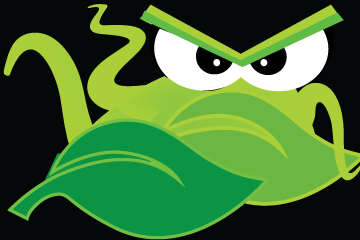Online applications are now open for anyone wanting to grow or process hemp in Minnesota in 2025. A license from the Minnesota Department of Agriculture (MDA) is required for individuals and businesses.
Applications must be submitted by April 30, 2025, and a license is valid for the 2025 calendar year.
The application can be found on the MDA website. Along with the online form, first-time applicants and authorized representatives need to submit fingerprints and pass a criminal background check. These licenses are for growing and processing industrial hemp only. The hemp grower or processor application is not for the growth or sale of adult-use or medical cannabis. The application is also not intended for the sale of hemp-derived cannabinoid products. Adult-use cannabis information can be found on the Office of Cannabis Management website.
Growers and processors need to be aware of the following for 2025:
- All authorized representatives designated by the applicant must pass a criminal history background check prior to the issuance of a license.
- Every lot of hemp grown requires pre-harvest THC regulatory testing. Each official regulatory sample collected by the MDA will cost $100.
- The MDA licenses processors that handle raw hemp and initially process it by extraction, decortication, devitalization, crushing, or packaging, and the department will continue random inspections of processor locations.
- License fees will remain the same. The minimum cost of a grower license is $400. A processing license is a minimum of $500. A 5% license surcharge is being added to support the modernization of the MDA’s technology systems which will provide better online services and more efficient processing of applications.
While the deadline to apply or renew is April 30, 2025, those actively growing hemp plants indoors past December 31, 2024, must renew their license before expiration at the end of the year.
Questions about the MDA’s Industrial Hemp Program should be sent to hemp.mda@state.mn.us or 651-201-6600.
Background
Industrial hemp and adult-use cannabis are both types of the same plant, Cannabis sativa. They differ by the concentration level of the psychoactive compound tetrahydrocannabinol (THC) within the plant. Hemp has less than 0.3% THC, and levels above that are considered marijuana.
Minnesota operated under a hemp pilot program from 2016-2020. In 2021, the program began operating under a new, federally approved state plan that governs production and regulation.
###
Media Contact
Brittany Raveill, MDA Communications
651-201-6131
Brittany.Raveill@state.mn.us
To expand Minnesotans’ access to fresh and culturally appropriate foods, the Minnesota Department of Agriculture (MDA) has opened applications for its Good Food Access Program (GFAP) Equipment and Physical Improvement Grant.
The GFAP grant helps grocery stores and small food retailers purchase equipment or make physical improvements that will allow them to increase the availability of and access to affordable, nutritious, and culturally appropriate foods (including produce) for underserved communities in low- and moderate-income areas. The agency will award up to $935,000 in this round of funding, and applicants may request between $5,000 and $75,000 for their projects.
Examples of eligible projects include the purchase and installation costs of items like shelving, coolers, and freezers; mobile food markets; permanent infrastructure at farmers’ markets; or architectural work. Projects that demonstrate positive economic and health impacts on underserved communities will be prioritized for funding.
To be eligible, applicants must be located in or serve a census tract designated as a food desert or must serve a substantial subpopulation — such as the aging population, those living with a disability, or those in a low- or moderate-income census tract — who have low supermarket access. Tribal entities and organizations that serve Native American tribal communities are also eligible and encouraged to apply.
Applications are due by 4 p.m. Central Time on Thursday, January 16, 2025. For full eligibility requirements and details of the application process, review the request for proposal (RFP) found on the GFAP Equipment and Physical Improvement Grant webpage.
###
Media Contact
Allen Sommerfeld, MDA Communications
651-201-6185
Allen.Sommerfeld@state.mn.us
Eight Minnesota retailers who demonstrate excellence in locally grown and produced products have been named a 2025 Minnesota Grown Retailer of the Year by the Minnesota Department of Agriculture’s (MDA) Minnesota Grown program, in partnership with the Minnesota Grocers Association (MGA). Along with awards given by region, a new beer, wine, and spirits award was given to recognize excellence in liquor stores.
This year’s winners include:
- Northwest: Hugo’s Family Marketplace, Thief River Falls
- Northeast: Super One Foods, Duluth Miller Hill
- Central: Chris’ Food Center, Sandstone
- Southwest: Jim’s Market, Canby
- Southeast: Rushford Foods, Rushford
- Twin Cities: Lunds & Byerlys, Apple Valley
- People’s Choice: Festival Foods, Andover
- Beer, Wine, & Spirits: Mackenthun’s Fine Foods, The Cove Wine & Spirits, Minnetrista
“We applaud these grocers and their employees for their leadership in offering Minnesota grown foods and products,” said MDA Commissioner Thom Petersen. “When shoppers have access to more foods grown and raised by their neighbors, it’s a win for everyone - Minnesota’s farmers, grocers, and communities alike.”
Each winner receives exclusive rights to use their regional Minnesota Grown Retailer of the Year branding in their ads and displays, and will be recognized by their peers at an MGA event in the spring. “Grocers are at the heart of the communities they serve, and we are so proud of the innovative partnerships between grocery stores, distributors, and farmers that are showcased in this contest,” said MGA President Patrick Garofalo. “We are thrilled to play a role in this effort celebrating the vital work of bringing fresh, healthy, and delicious local products to Minnesotans across the state.”
Awards are determined by multiple factors, including the number of local products offered and the number of Minnesota farmers and producers the grocers purchased from. The review panel also looked at use of ads, displays, social media, and events to promote Minnesota grown items to customers. More information can be found on the Minnesota Grown Retailer of the Year webpage.
“Grocers who participated this year reported seeing a significant increase in their sales across multiple departments, from fresh produce to the meat section, which was incredibly exciting to see," reported Minnesota Grown Marketing Manager, Rachel Wandrei. "The stores went all out this year, from creating recipes with local foods on their social media channels, to hosting events where shoppers can meet their local farmers. By highlighting these local products, they are not only strengthening their bottom line, they are also supporting farmers and boosting their local economy, all while giving customers the high-quality local foods they are looking for.”
The Minnesota Grown Program is a statewide partnership between the MDA and Minnesota agricultural producers with a mission to promote Minnesota grown products for the mutual benefit of consumers and producers.
The Minnesota Grocers Association is the only state trade association that represents the food industry of Minnesota from farm to fork, with over 300 retail, manufacturer, and wholesale members supporting nearly 1,300 locations statewide. It actively advances the common interest of all those engaged in any aspect of the food industry as a leader and advocate in government affairs.
###
Media Contact
Allen Sommerfeld, MDA Communications
651-201-6185
Allen.Sommerfeld@state.mn.us
A new grant opportunity for urban farmers in Minnesota to make conservation-focused improvements is now available, alongside returning grant funding for groups seeking to promote urban youth agricultural education and urban agricultural community development.
The Minnesota Department of Agriculture (MDA) is once again offering $1.87 million for this round of its Agricultural Growth, Research, and Innovation (AGRI) Urban Agriculture Grant. In addition, the MDA is offering a new Urban Farm Conservation Mini-Grant with a total of $75,000 available, thanks to funding from the USDA’s Natural Resources Conservation Service.
AGRI Urban Agriculture Grant
- For Minnesota businesses, nonprofits, schools, local governments, and tribal communities seeking to promote urban youth agricultural education and community development.
- Offers up to $75,000 per project for approved recipients.
- Can cover costs for personnel, supplies, equipment, transportation, or translation related to eligible projects.
Urban Farm Conservation Mini-Grant
- For a variety of entities who are commercially farming in a Minnesota urban area, meaning they sell what they produce.
- Offers up to $5,000 per approved recipient.
- Can cover a variety of tools, supplies, services, and other expenses related to improving conservation practices on their urban farm.
For both grant programs, applicants must be located in Minnesota cities with a population over 5,000, or be located within the boundaries of federally recognized tribal land in Minnesota and serve tribal community members.
Up to 100% of the total project costs may be covered by either grant, and a cash match is not required. Grantees will need to pay for eligible expenses up front and then request reimbursement, using proof of purchase and proof of payment.
A joint informational session will take place online at noon on December 12, 2024 and registration is required. Applications for both must be submitted by January 30, 2025.
Visit the AGRI Urban Agriculture Grant web page for more information on applying, as well as details of previously funded projects. Visit the Urban Farm Conservation Grant web page for more information on its application.
###
Media Contact
Larry Schumacher, MDA Communications
651-201-6629
Larry.Schumacher@state.mn.us
The Minnesota Department of Agriculture is seeking input on a draft state aquaculture plan. Comments are being accepted now through December 18.
Minnesota recognizes aquaculture, which is the practice of privately raising fish or other aquatic life, as agriculture. At its peak in 2005, the direct revenue associated with aquaculture in the state exceeded $8 million.
The state’s draft plan assesses the current state of the aquaculture industry in Minnesota and provides sector analysis. Sectors include fish for food, bait fish, stocker fish, and ornamentals. It also provides top priorities and recommendations in the areas of marketing, leadership, permitting and regulations, research, policy, production methods, government programming, and future planning.
The draft plan can be found at www.mnaquaplan.com, and comments can be made on the website or emailed to Luke Jodoin at luke@steamboatroad.com.
Once public comments are evaluated, the finalized plan will be presented to the Minnesota Legislature in February 2025.
###
Media Contact
Allen Sommerfeld, MDA Communications
651-201-6185
Allen.Sommerfeld@state.mn.us
